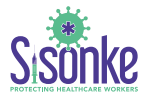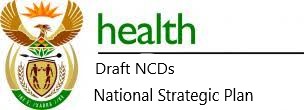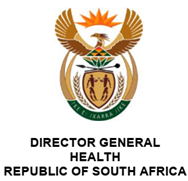
Day One of the first phase of COVID-19 the vaccine rollout to health workers was a huge success today. South Africa secured the single-dose Johnson & Johnson (JnJ) vaccine for use in the Sisonke (‘Together’) programme. Sisonke will be rolled out to up to 500,000 healthcare workers starting in 18 public sector hospitals across all nine provinces.
As a demonstration of confidence in the safety and efficacy of the vaccine leaders from organised labour took their shots at Steve Biko Academic Hospital today. These are leaders who are health workers themselves from organisations like DENOSA, HOSPERSA, NEHAWU, NAPSU, NUPSAW and others.
Protecting our healthcare workers is an urgent priority
Phase 1 of the vaccine programme is focused on healthcare workers. This is the first step in rolling out a comprehensive vaccine distribution strategy for the nation. Healthcare workers are the frontline of the country’s COVID-19 response and are 3-4 times more likely to contract COVID-19 than the general population. To date 40,000 South African health workers have contracted COVID-19, 6,473 have been hospitalised and 663 of our colleagues have passed on.
Phase 1 of South Africa’s three phase vaccine rollout strategy was paused temporarily earlier this month following concerns regarding the efficacy of the Oxford-AstraZeneca (also known as CoviShield) vaccine against mild-moderate COVID caused by the 501.V2 variant. CoviShield may still play a role in the National Programme. However, more research is needed to determine how and when it will be used. Vaccination using a safe and efficacious vaccine must start without delay to protect healthcare workers during a likely 3rd wave this winter. The switch to the JnJ vaccine allows for the country to restart Phase 1 vaccine rollout to keep our health workers safe.
Single-dose JnJ vaccine
The single-dose JnJ vaccine protects against severe COVID-19 in South Africa. The safety and efficacy of the vaccine was assessed in the international Phase 3 study, ENSEMBLE, which was conducted across Latin America, USA and South Africa with more than 43 000 participants. South Africa contributed around 7,000 participants to the trial between October 2020 and February 2021, including participants who were exposed to the 501.V2 variant. The long-term follow-up of study participants is still ongoing, as is required for the process of regulatory approval by the South African Health Products Regulatory Authority (SAHPRA) for commercial or emergency use. However, since the safety and efficacy of the vaccine has already been proven, the current rollout is being conducted under The Sisonke Open Label Program, to assess real world effectiveness among health care workers, who have already been prioritised for vaccination by the South African Government’s Covid-19 Vaccination Strategy.
The JnJ vaccine has been shown to be safe, with no safety concerns reported from past trials or rollouts. The ENSEMBLE trial showed excellent protection of a single-dose vaccine against severe COVID-19, including in South Africa, and as such a delay in rolling out the vaccine would be unethical.
There is a clear process for vaccine rollout to healthcare workers. To receive the vaccine, healthcare workers must:
(1) register on the South Africa Electronic Vaccination Data System,
(2) respond to an SMS invitation, and
(3) provide informed consent to take part.
Healthcare workers will receive a vaccination voucher and communication once a vaccination centre is open to render the service. To register use this link: https://vaccine.enroll.health.gov.za/#/
The Sisonke rollout will include meaningful collaboration between the original team who were involved in the ENSEMBLE trial, JnJ, and the NDoH and the SAMRC. The partners will closely monitor, track and assess the real-world rollout of the vaccine. They will measure:
(1) the occurrence of hospitalizations and deaths,
(2) the incidence of severe SARS CoV-2 infections,
(3) the diversity of breakthrough infections; and
(4) evaluate vaccine uptake among healthcare workers in South Africa.
This experienced team will utilise their trained and qualified staff including pharmacists, clinicians and others to receive, store and oversee the dispensation of the JnJ vaccine. Sisonke staff will work very closely with national and provincial health public and private vaccine centres to ensure that the vaccination of healthcare workers is done safely and carefully managed.
The protection of our healthcare workers through the rollout of the safe and efficacious vaccine is an urgent priority for South Africa.

The SANCDA supports the prioritization of phase 2 vaccination. However, how this is to happen is less than transparent. PLWNCDs and related civil society organisations keep asking for transparent processes and policy for phase 2 vaccinations. South African policy must show the priority comorbid health conditions which place PLWNCDs at greatest risk for severe COVID-disease or death.
- Publish – COVID-19 deaths statistics by comorbidity/ underlying conditions.
- Compile – priority evidence-based list of comorbid conditions for phase 2 COVID vaccination.
- Communicate with public sector “health users” in phase 2 COVID-19 vaccination
1) Publish – COVID-19 deaths stats by comorbidity
The SANCDA want the ongoing publication on COVID-19 deaths according to the main underlying comorbidities. Civil society believes the release of this information is essential for transparency. The NDoH has this information for hospitalised patients. Sadly the format of publication doesnt show linked comorbidities.
However, before COVID-19 people who die outside of a hospital, the cause of death is notoriously poorly recorded. The challenge to the data collection is a long-standing issue. The most recent report from the 2016 cause of death statistics shows that 32.5% of reported deaths has this information missing. The top category of death is NCDs in 2016 but there has not been a publication on cause of death in SA since then.
This information is critical to ensure that the limited number of doses 12 million (6 million people we think) go those in greatest need according to facts.
The challenge is that outside of the NCDs sub directorate, the NDoH does not respond to our many requests for information. The NCDs civil society experience is that the long-held NDoH priority conditions of HIV, TB and malaria always remain just that. NCDs may get a mention and usually only diabetes and hypertension. So we want all of society to ask on behalf of the people living with NCDs.
2) Compile priority evidence-based list of comorbid conditions
So far in this pandemic we havent seen any transparent evidence based list of priority comorbid conditions. So how is this the priority to be determined? Compared with Millenium Development Goal (MDG) conditions like HIV/TB there are few NCDs indicators as shown in the National Indicator Data Set 2016.
South African health policy appears to be silent on how health priorities are determined. One of the few policies that address the needs of the population (priorities) is still in draft format and relatively recent, NHI Bill 2019.
PLWNCDs and their representative organisations wish to participate in and have a transparent evidence-based process to determine priority need and the criteria upon which this is based.
3) Communicate unambiguously with public sector users
The SANCDA asks for transparent clear communication on how people without health insurance/ medical aid will be selected and notified of vaccination date and time.
There are no adequate health systems information for people with NCDs. The current NHI health systems information is based on HIV and MDG information.
MDG conditions formed the basis for the development of health systems strengthening information system development and programmes such as the “Ideal Clinic.” integrated chronic disease management and CCMDD are all examples.
See the CCMDD access to medicines information and raise a storm.
The Fix the Patent Laws Coalition (FTPL), a group of over 40 organisations working to reform South Africa’s patent laws, welcomes the progressive proposal by South Africa and India for a waiver of all intellectual property in respect of COVID-19 related diagnostics, therapeutics and vaccines. We have seen how a lack of access to COVID-19 medical tools threatens countries’ ability to respond to the virus, especially developing countries. We believe that this proposal will promote and expedite equitable access to all health technologies in all countries.
We call on all countries to support the proposal to the Trade-Related Aspects of Intellectual Property Rights (TRIPS) Council for a temporary waiver of all patents on products needed to test, treat or vaccinate against COVID-19, and to act with urgency. COVID-19 is a global health crisis, and one that affects working-class and poor people disproportionately. The world needs bold steps such as this that prioritise the needs of vulnerable populations above profits and above nationalism.
“While the waiver will not by itself lead to access to COVID-19 health technologies, it is an important step towards equitable access,” says Executive Director at SECTION27 and FTPL member Umunyana Rugege. “In South Africa, we would like to see the draft amendments to the Patents Act published without delay to ensure that the legal environment is readied for the introduction of a range of diagnostics, medicines and vaccines.”
The FTPL coalition has called on the South African government to take the following steps to help fight COVID-19:
- Put a temporary moratorium on granting patents on COVID-19 related products as they are proven effective.
- Automatic compulsory licensing of COVID-19 related health products with existing or pending patents.
- Fix the Patent Laws urgently to ensure use of all legal flexibilities to improve access to health products.
The South African government has shown exemplary leadership on the world stage to ensure that developing and middle-income countries are not left behind while wealthy nations secure deals with pharmaceutical companies, and that monopolies do not stand in the way of widespread African access to COVID-19 vaccines. This is an important opportunity for countries to stand in solidarity and support the call that would ensure all countries stand to benefit from efforts to fight the pandemic.
South Africa’s leadership of the African Union and initiatives like the COVAX facility, and the Access to COVID-19 Tools Accelerator have put solidarity before nationalism, and FTPL is fully behind our government in its quest to protect public health and ensure equitable access to medical products.
FTPL has joined a global community of civil society organisations calling for the urgent adoption of the Waiver. You can read the letter from civil society here.



